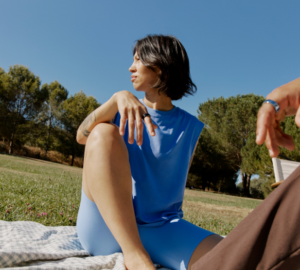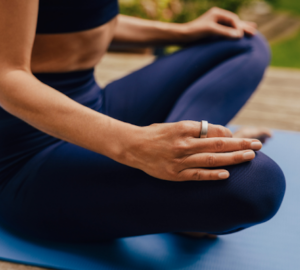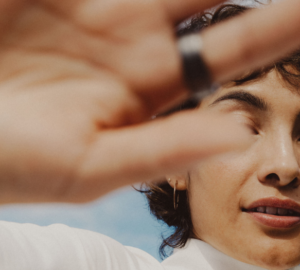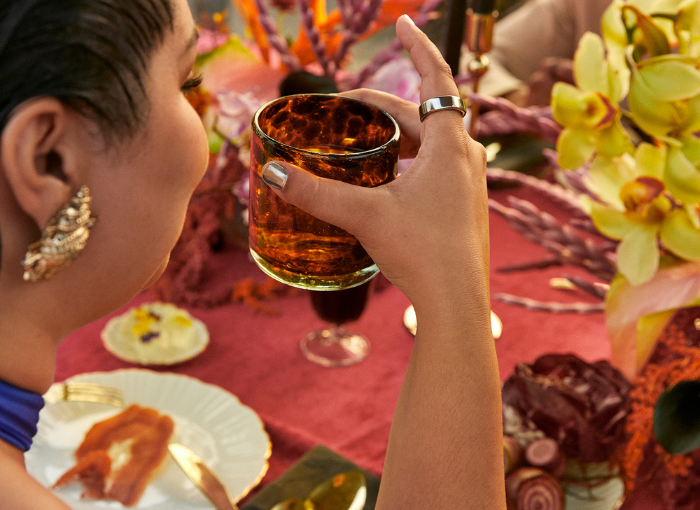If a post-meal nap in front of a fire or a football game is a holiday tradition for you, you’re not alone. But contrary to popular belief, it turns out it’s not all about the tryptophan-containing turkey. Below, dive into the science behind this frequent phenomenon and what you can do to feel more energized after a big meal on any day.
| Member Tip: After a nap of 15 minutes or more, check your Oura App to see how your nap affected your Sleep Score or Readiness Score. |
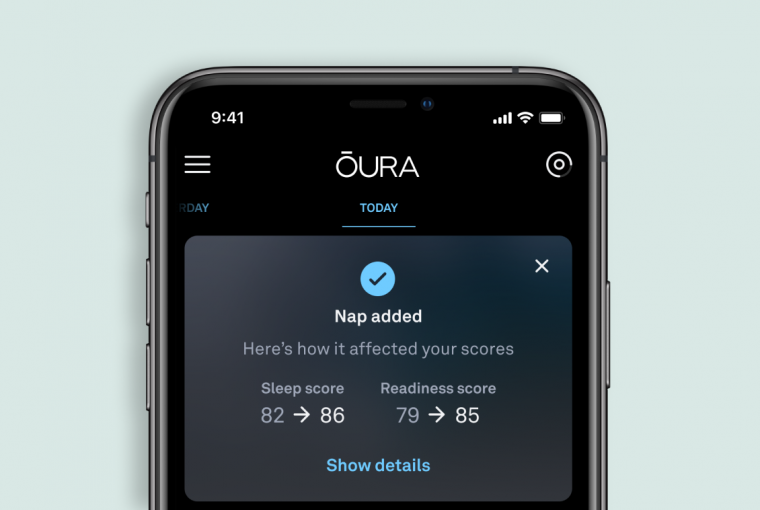
The Truth About Turkey & Tryptophan
If you’re in the U.S., you’ve likely experienced the American tradition of eating a large meal on Thanksgiving afternoon. And if you get lethargic after it, you’re not alone. Many people blame the main character of the traditional Thanksgiving meal — turkey — as the culprit behind the post-meal sleepiness. Turkey contains tryptophan, an essential amino acid linked to the production of neurotransmitters serotonin and melatonin, which can induce feelings of relaxation and sleepiness. While tryptophan might be part of the story, it’s not all the turkey’s fault.
The reason: A typical serving of turkey (around 8 ounces), contains only 125 to 150 mg of tryptophan — not nearly enough to cause you to fall asleep, which research suggests would be about 1000 mg.
Plus, alongside tryptophan, turkey contains many other amino acids which compete for entry into your brain. The catch: For an amino acid to pass through the blood-brain barrier, it requires transport on a carrier protein. But due to competition from the many other amino acids, it’s harder for tryptophan to find a transport carrier. Thus, it’s unlikely to raise levels in your brain.
READ MORE: 8 Foods and Drinks For Better Sleep (And 4 To Avoid!)
Why Am I So Tired After a Holiday Dinner?
While tryptophan in turkey may contribute to a feeling of drowsiness, it’s more likely that you feel sluggish after a big meal due to a combination of factors, including the consumption of carbohydrates, alcohol, and the larger-than-typical volume of food.
1. The Carb-Induced “Food Coma” Is Real
Carbohydrates are plentiful at most Thanksgiving dinners — think: mashed potatoes, stuffing, sweet potato casserole, dinner rolls, and pecan pie.
When you consume a high-carbohydrate meal, it triggers the release of insulin to help process the glucose (aka sugar) in your bloodstream.
If your body has more sugar than usual, it can cause a rapid insulin spike to uptake glucose. The sudden spike and drop in blood sugar that happens after eating simple carbs can lead to an energy crash, also known as reactive hypoglycemia, causing you to feel tired.
This insulin surge also leads to a relative increase in tryptophan in your bloodstream, helping it enter the brain. In the brain, tryptophan eventually converts into serotonin and melatonin, both of which are neurotransmitters that increase feelings of relaxation and sleepiness.
In other words: Turkey alone won’t make you tired, because without the insulin surge, the tryptophan won’t effectively enter the brain. Even with the insulin, you’re probably not eating enough turkey to feel the effects of tryptophan. Rather, drowsiness after a meal is also linked to the plethora of simple cards on your plate as well.
2. Drinking Makes You Drowsy
Socializing with family and friends is often accompanied by a glass of wine in hand. Alcohol acts as a sedative, which means it affects your central nervous system and can cause drowsiness.
It can also impair the quality of your sleep later in the night, making you more tired the next day. We analyzed aggregated and anonymized data from Oura members and found that the amount of naps taken the day after Thanksgiving increase by 7% – this might be why!
Combining alcohol with celebratory socializing — plus relaxation time on the couch — can further intensify your post-dinner drowsiness.
READ MORE: How Does Alcohol Impact Oura Members?
3. You’re Likely Eating More Than Normal
When you consume large amounts of food, your digestive system works in overdrive to process the meal. Your heart rate increases and your metabolism ramps up, which are both energy-intensive systems. This can divert blood flow away from other areas, including your brain, leading to fatigue.
Additionally, eating a big meal stimulates the parasympathetic nervous system. This is your “rest-and-digest” branch of the autonomic nervous system. As you may expect based on the name, this part of your nervous system promotes relaxation and drowsiness. Maybe that’s why they call it comfort food!
5 Tips to Prevent Holiday Fatigue
If you have the ability to take a power nap, go for it. (Just avoid taking a nap too close to bedtime to avoid interrupting your sleep!)
However, parents with young children or people hosting the holiday dinner may not have the luxury of taking a post-meal nap. If that sounds familiar, implement these 5 tips at your next feast to help prevent post-meal fatigue.
- Have an after-meal espresso: A single espresso shot contains about 60 milligrams of caffeine — enough to perk you up, but for most people, usually not enough to impact your sleep. Plus, science suggests that post-meal caffeine may enhance digestion and relieve fullness. That being said, caffeine has a half-life of about five hours, so if you’re eating in the evening, skip it.
- Eat enough protein: Imagine dividing your plate into three sections, and fill each with protein, veggies, and carbs. Eating a meal that’s high in protein can help you avoid a postprandial dip in energy, as protein can help you avoid the glucose spike and crash. One study found that people who ate a meal with at least 35% protein had lower post-meal blood sugar.
- Get some fresh air: Grab the family and go for a walk around the block after your feast. A study found that a 30-minute walk substantially reduces the glucose peak, improving your glycemic response.
- Sip smartly: If you do want to consume alcohol, alternate a glass of water for every alcoholic beverage you consume.
- Focus on sleep the night before: Getting a solid night of shuteye the night before helps balance your mood, improve your energy, and lower levels of ghrelin — the hunger hormone.
READ MORE: How Sleep Helps With Weight Management
